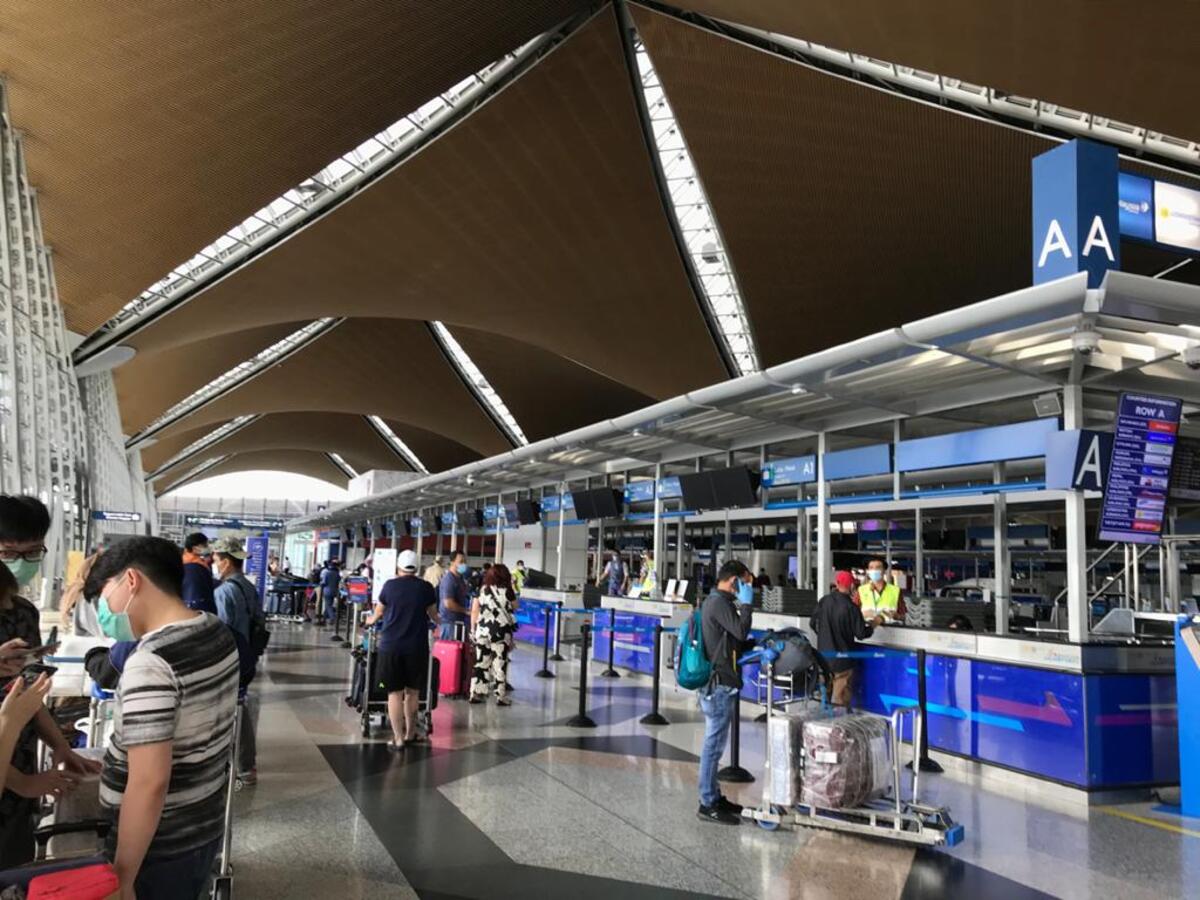KUALA LUMPUR, Jan 2 – Flight tracking data shows 30 direct passenger flights from China are scheduled to arrive in Malaysia this week from today until Sunday, ahead of China reopening borders on January 8.
According to global flight tracking service Flightradar24 – which was accessed by CodeBlue yesterday – 11 flights are scheduled to arrive at Kuala Lumpur International Airport from Xiamen, eight from Shanghai, four from Guangzhou, three from Fuzhou, two from Xi’an, and two from Changsha in that period.
Assuming a 300-seat capacity in the planes, the 30 direct flights from China to Kuala Lumpur from January 2 to 8 amount to carrying 9,000 passengers over one week, or 1,286 arrivals a day on average.
Italian health authorities reportedly said last Wednesday that nearly half of the passengers on two recent flights arriving in Milan from China had tested positive for Covid-19, leading Italy to mandate on-arrival Covid-19 antigen swabs for all travellers coming from China and genome virus sequencing.
Assuming a 50 per cent positivity rate for travellers from China visiting Malaysia, the estimated 1,286 daily arrivals over this week translate to about 643 imported Covid-19 cases a day – just from arrivals from China.
This adds 120 per cent to Malaysia’s current reported caseload of 538 daily Covid-19 cases, based on a seven-day average last December 31, according to the KKMNow site. Confirmed coronavirus infections nationwide have been declining since peaking early November, in line with testing, though the positivity rate currently remains at below 4 per cent.
Most Covid indicators have been trending downward since peaks in late November or early December, including hospital admissions, patients in the intensive care unit (ICU), ventilated patients, and deaths. People are still dying from Covid-19 every day in Malaysia, averaging under 10 daily fatalities, including brought-in-dead cases.
The Malaysian health care system is unlikely able to handle even a small rise in hospital admissions due to Covid-19, as most hospitals across the public and private sectors are full of non-Covid cases, causing patients to be stranded for days or hours in the emergency departments of public and private hospitals respectively.
Morocco’s Foreign Ministry said last Saturday that all travellers from China, regardless of their nationality, will be banned from entering Morocco beginning January 3, to avoid a new wave of Covid-19 infections in the country.
China is reopening borders on January 8, despite a huge Covid-19 wave that has seen anecdotal reports of overflowing hospitals and crematoriums after Beijing lifted its three-year zero-Covid policy. This has triggered various travel restrictions from multiple countries across continents on travellers from China.
Canada and the United States have mandated a Covid-19 test, taken no more than two days before departure, with a negative result for all air travellers aged two years and older on flights originating from China, Hong Kong, and Macau, effective from January 5.
The UK has also implemented a similar pre-departure negative Covid test requirement, effective from January 5, for people travelling from China on direct flights to England. Australia too requires pre-departure Covid-19 tests with a negative result for travellers flying from China.
In Europe, France has mandated negative Covid-19 tests for passengers flying from China less than 48 hours before embarking. Spain allows travellers from China to skip the pre-departure test if they are fully vaccinated.
South Korea requires negative pre-departure Covid-19 tests from travellers from China, who must also undergo a PCR test within the first day of their arrival in the country. India has also mandated a negative Covid-19 test for travellers arriving from China, Hong Kong, Japan, South Korea, and Thailand.
Malaysia has not mandated either pre-departure or on-arrival Covid-19 tests for visitors from China. Health Minister Dr Zaliha said in a statement Friday that all overseas arrivals, regardless of where flights originate from, will undergo fever screening, where symptomatic cases will be referred to health authorities. The coronavirus can be spread from people who do not show symptoms.
She also said wastewater surveillance will be conducted on planes arriving from China for virus genome sequencing to identify any new variants. However, the minister’s written statement did not state when these protocols would come into effect.
Pressure has been mounting on the government, including from local tourism groups, to impose travel rules or even bans altogether on China arrivals.
PAS information chief Khairil Nizam Khirudin, who is also Jerantut MP, suggested last Saturday a temporary suspension of the entry of tourists from China, besides checking the Covid-19 status of tourists who are already in Malaysia.
“Malaysia needs to learn from the epidemic in 2020 when steps were not taken to prevent the entry of tourists at risk of carrying Covid-19,” he said, in response to Dr Zaliha’s statement.
DAP Youth chief Dr Kelvin Yii, who is also Bandar Kuching MP, previously suggested mandating pre-departure and on-arrival Covid-19 tests for travellers from China.
Infectious disease and public health experts, however, told CodeBlue that local measures like wearing face masks and getting boosted with the mRNA vaccine were more important than border controls, saying that banning visitors from China would not prevent outbreaks or the entry of new variants into Malaysia.
“We should make informed decisions and avoid being influenced by the fear of the unknown,” said Prof Dr Sanjay Rampal, a professor of epidemiology and public health at Universiti Malaya, who stressed that the more important question is whether any new variants emerging from China’s outbreak will cause more severe disease.
The World Health Organization (WHO), after meeting with high-level health Chinese officials last December 30, issued a statement urging China to share data on its Covid epidemiological situation, including more genetic sequencing data, to help China and other countries form accurate risk assessments and to inform effective responses.








